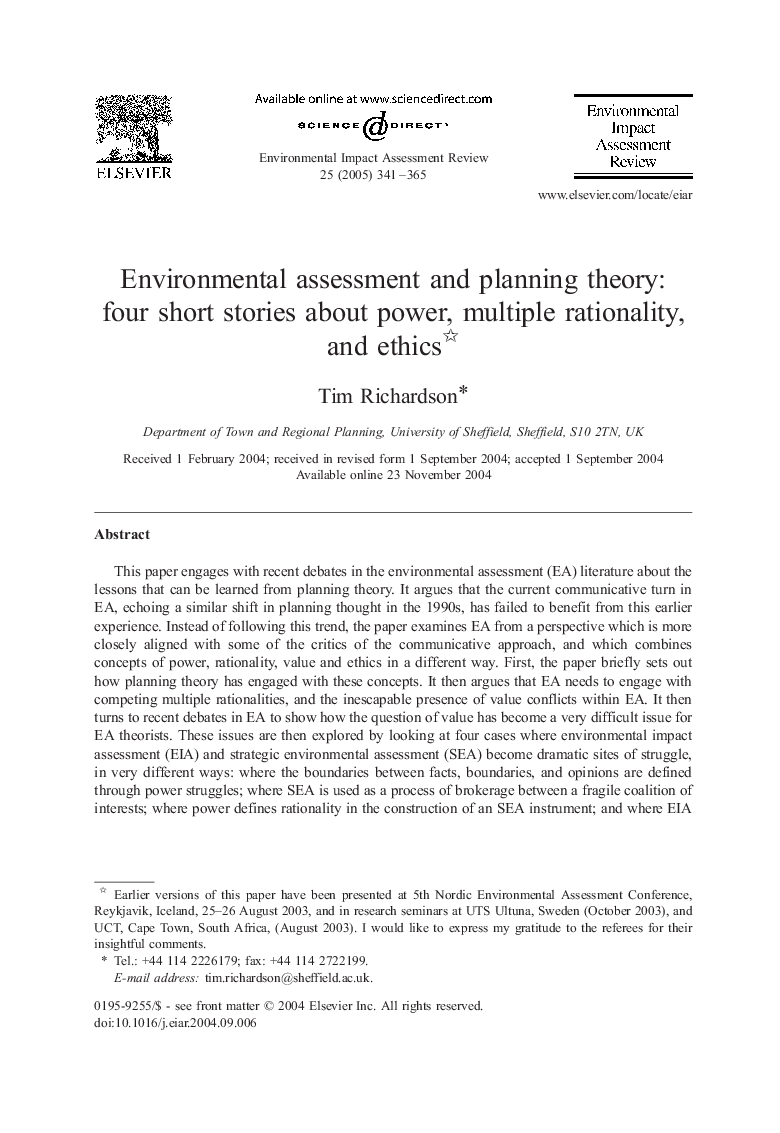| Article ID | Journal | Published Year | Pages | File Type |
|---|---|---|---|---|
| 10504302 | Environmental Impact Assessment Review | 2005 | 25 Pages |
Abstract
This paper engages with recent debates in the environmental assessment (EA) literature about the lessons that can be learned from planning theory. It argues that the current communicative turn in EA, echoing a similar shift in planning thought in the 1990s, has failed to benefit from this earlier experience. Instead of following this trend, the paper examines EA from a perspective which is more closely aligned with some of the critics of the communicative approach, and which combines concepts of power, rationality, value and ethics in a different way. First, the paper briefly sets out how planning theory has engaged with these concepts. It then argues that EA needs to engage with competing multiple rationalities, and the inescapable presence of value conflicts within EA. It then turns to recent debates in EA to show how the question of value has become a very difficult issue for EA theorists. These issues are then explored by looking at four cases where environmental impact assessment (EIA) and strategic environmental assessment (SEA) become dramatic sites of struggle, in very different ways: where the boundaries between facts, boundaries, and opinions are defined through power struggles; where SEA is used as a process of brokerage between a fragile coalition of interests; where power defines rationality in the construction of an SEA instrument; and where EIA is challenged from the outside by civil society. The paper closes by discussing how EA practitioners can operate reflexively and ethically in a world of contested rationality.
Keywords
Related Topics
Physical Sciences and Engineering
Energy
Renewable Energy, Sustainability and the Environment
Authors
Tim Richardson,
